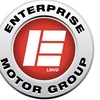Buying a used car can be an exciting and cost-effective option for many people. Whether you're a first-time car buyer or looking to upgrade your current vehicle, purchasing a pre-owned car can save you money while still providing reliable transportation.
However, it's essential to approach the process with caution and awareness of potential red flags. In this blog post, we will explore the key factors to consider when buy used cars in Auckland, helping you navigate the process and avoid any unexpected surprises. So, let's dive in!
Do Your Research:
Before you start visiting car dealerships or browsing online listings, it's crucial to do your homework. Start by researching the make, model, and year of the car you're interested in purchasing. By gathering information about the vehicle's reliability, common issues, and recalls, you can make a more informed decision.
Additionally, take the time to research any specific problems associated with the make and model you're interested in. Online forums and owner communities are great places to find honest opinions and experiences from current and past owners. Remember, the more information you have, the better equipped you'll be to make an informed decision.

Physical Inspection:
While researching the car's history is crucial, it's equally important to physically inspect the vehicle before making any commitments. A thorough inspection can uncover any hidden issues or red flags that may not be immediately apparent from online listings or photographs.
When conducting a physical inspection, start with the exterior of the car. Examine the paintwork for any signs of rust, dents, or mismatched colours, as these may indicate previous repairs or accidents. Pay attention to the condition of the tires, ensuring they have sufficient tread depth and are evenly worn.
Moving inside the car, inspect the condition of the seats, dashboard, and any other interior features. Look for any signs of excessive wear and tear or damage. Check that all buttons, switches, and knobs are functioning correctly, as repairs or replacements can be costly.
During the inspection, be mindful of any unusual odours or sounds. A musty smell might indicate water damage, while a strong odour of cleaning products could be masking other issues. Listen for any strange noises when starting the vehicle or while driving, as they could be indicative of mechanical problems.
Vehicle History Report:
A comprehensive vehicle history report is an invaluable tool when buying a used car. These reports provide a detailed overview of the car's past, including accidents, ownership history, maintenance records, mileage discrepancies, and more. By obtaining a vehicle history report, you can gain insight into any potential red flags that may not be immediately evident.
These platforms compile data from various sources, including insurance companies, service centres, and government records. When reviewing the report, keep an eye out for any significant issues that could impact the car's reliability or value.
Professional Inspection:
While conducting a personal inspection and test drive are essential steps, it's always wise to consider getting an independent mechanic's opinion. A professional inspection can identify hidden issues that may not be apparent to the untrained eye, providing you with a more accurate assessment of the car's condition.
When seeking a professional inspection, look for a trusted mechanic who specialises in the specific make or model of the used car you're interested in. They will have a deeper understanding of the vehicle's intricacies and can identify any potential problems.
During the inspection, the mechanic will thoroughly assess the car's mechanical components, including the engine, transmission, brakes, and suspension. They may also use diagnostic tools to check for any electronic or computer-related issues. Armed with the mechanic's evaluation, you can make a more informed decision about the car's worthiness.
Pricing and Documentation:
Once you've conducted your research, inspections, and test drive, it's time to consider the pricing and documentation associated with the used car. Understanding fair market prices for similar vehicles is crucial in negotiating a reasonable deal.
While negotiating, don't be afraid to walk away if the price seems unreasonable or if the seller is unwilling to address any red flags you've identified. Remember, there are plenty of used cars available, and it's better to wait for the right deal than to rush into a potentially problematic purchase.
Lastly, carefully review all documentation associated with the car. This includes the title, registration, warranty, and service history. Ensure that the title is clean, meaning there are no outstanding liens or ownership disputes. Review the service history to confirm that the car has been adequately maintained throughout its life.
Conclusion:
Buying a used car can be a rewarding experience if done correctly. By following these guidelines and being cautious of red flags, you can minimise risks and make an informed decision.
Remember, the key steps to take when buy used cars in Auckland include thorough research, physical inspection, vehicle history report, test drive, professional inspection, and understanding pricing and documentation.
By being proactive and diligent, you can find a reliable used car that meets your needs and budget. Happy car hunting!


No comments yet